Plateau state election petition judgements: The PDP conundrum
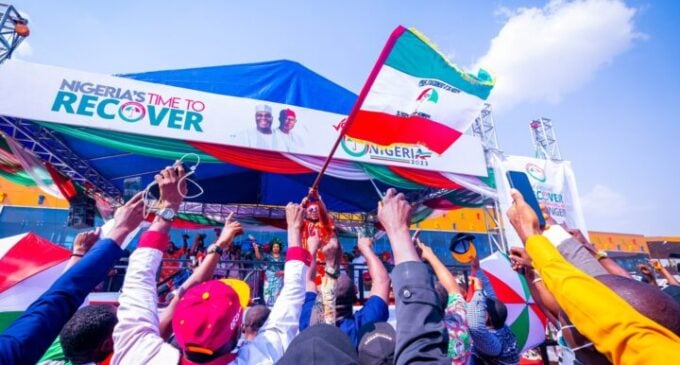
BY HENRY KELECHUKWU ENI-OTU
Against the backdrop of the recent judgments of the election petition tribunal sitting in Plateau and the subsequent judgments of the court of appeal which affirmed the decision of a particular panel amongst the three panels constituted for the state election petitions with regards to the various houses of assembly seats, house of representatives seats, senatorial seats and governorship seat. Ever since the decisions of the Court of Appeal sacking the house of assembly members, house of representatives members and senators, and now the governor, all elected on the platform of the Peoples’ Democratic Party (PDP), there have been a series of street, media and legal opinion in respect of the said judgment.
While many commended the decision as being the true reflection of the law, others have criticized and consequently pointed a faulty finger at the appellate court on grounds of inconsistency in terms of delivery of judgment in what they considered as double standard and political favouritism. It is, therefore, imperative to critically appraise the fact of the matter vis-à-vis the extant laws to air legal opinion to salvage the confusing state of affairs arising from the misconceptions and misinterpretations of facts and laws.
Let’s take a careful review of the historical background to the crisis which seems to be occasioning technical and catastrophic damage to the status of PDP in Plateau state. Sometime in 2020, the Peoples’ Democratic Party (PDP) in Plateau state were enmeshed in a leadership crisis which crystalised into a legal suit before the Plateau State High Court in Suit No: PLD/J/304/2020 wherein the high court sitting in Plateau state ordered the PDP to conduct fresh congress in all local governments in the state as the earlier one conducted was in contravention of extant laws and consequently nullified. The same remained the case as of October 2022, when the PDP conducted her primaries for the various elective positions in Plateau state.
The said judgment of the Plateau state high court went to the root of the capacity of the PDP to validly nominate and sponsor candidates in the state until the said judgment cum order was given effect completely. This judgment was upheld by the court of appeal in two separate appeals with the supreme court in SC/CV/1341/2022 equally dismissing a further appeal and upholding the decision of the Plateau state high court. From information obtained from different sources, the PDP proceeded to comply in part with the order by conducting congresses in some local governments as opposed to the entire local government areas in Plateau state. Instructively, the judgment had earlier prevented the PDP from sponsoring candidates for the local government elections in the state.
The PDP proceeded to nominate and sponsor candidates from the hitherto nullified congresses, to participate and contest in the 2023 general election. Indeed, the candidates sponsored by PDP in all elections in Plateau state have now, because of Court of Appeal decisions, lost their hitherto mandates based on the subsisting and yet-to-be-complied judgment of the Plateau state high court, nullified the elections of members elected on the platform of the PDP, on the ground that PDP could not have validly nominated nor sponsored any candidate in Plateau state, having not complied with the said judgment.
Upholding the decision of the tribunal and dismissing the appeal, the courts of appeal in one of the cases cum appeal held that the evidence adduced by PDP showed clearly that 12 local governments were excluded from the alleged fresh congress against the order of court which directed that fresh congress be conducted in all 17 local governments and this is fatal as partial compliance is deemed to be non-compliance in law. Thus, the panel of the court of appeal, led by Honourable Justice El-Frieda Williams-Dawodu, affirmed the decision of the tribunal wherein Hon. Justice Mohammad Tukur-led panel had declared that all votes in favour of the PDP were wasted votes and consequently declared the candidate that came second in the general election as the winner of the election.
In analysing the instant situation, the questions that call for legal appraisal are;
- Whether the issue of qualification/nomination of a candidate in an election is both pre and post-election matter?
- Whether PDP indeed had validly nominated and legally sponsored candidates in the general election where a Court of competent jurisdiction has determined its status?
On the first issue, it is not in doubt that before now, the issue of qualification and nomination of a candidate in an election is considered a pre-election matter which can only be determined by a federal high court. However, it must be reckoned as an exception that where there is a judgment of a court of competent jurisdiction which has determined an issue affecting the status of a candidate or a party in an election, then such issue qualifies as both pre-election and post-election matter without more. Hence the issue of qualification simpliciter is pre-election, while qualification could equally fall within the scope of a valid sponsorship, particularly in the event there exists a ruling, which still subsists from an earlier judgment on the qualification or otherwise of a political party or candidate, in which case, same may qualify as pre and post-election matter.
On the second issue, I adopt the submission on the first issue above to posit that the status of PDP in nominating candidates to contest in the said election has been determined by the court in its finality and as such constitutes estoppel by judgment.
In the recent presidential election petition in the case of MR PETER GREGORY OBI AND ANOR V. INEC & 3 ORS PET NO: CA/PEPC/03/2023 PG 174 Para 2, Per Hon. Justice Haruna Tsammani JCA on the issue of the finality of a court’s judgment on an issue, the court posited thus: “The law is well settled that where an issue of fact affecting the status of a person or thing has been determined in a final manner as a substantive part of a judgment of a court having jurisdiction to determine that status, such determination will constitute estoppel by judgment to any subsequent proceedings between any parties whatsoever. See MADAM ABUSATU AGBOGUNLERI V. JOHN DEPO & ORS (2008) LPELR-243 (SC) on Page 20, Paras, D-G, Per Muhammed JSC…”
There is no dispute as to the fact that there was a valid judgment of the high court that nullified the congress held by PDP and consequently ordered fresh congress in all the local governments across the state. Also, it is evident even from the documents tendered by PDP that the party, rather than conducting a fresh congress in all the 17 local governments as ordered by the court, proceeded to conduct a congress that outrightly excluded 12 local governments. Such action by the PDP is indeed non-compliance with the order of the court which invariably means that the PDP did not conduct any congress in line with a subsisting and binding court order. It is on this premise that the PDP cannot be heard to complain on the said recent judgment of the court of appeal upholding the judgment which had earlier determined the status of the PDP.
Flowing from the above, it thus means the PDP did not hold a valid congress flowing from which a valid primary election could have been held to elect and sponsor candidates that eventually bore the flag of the party in the 2023 general election.
Accordingly, the party and their candidates could not have validly garnered votes during the election as all votes in favour of a party that did not have a legally and validly sponsored candidate are deemed to be wasted votes.
Where this is the case, the law is crystal clear as to what the tribunal is empowered to do under the law. Sections 136 (2) of the Electoral Act provides as follows: “Where an election tribunal or court nullifies an election on the ground that the person who obtained the highest votes at the election was not qualified to contest the election, the election tribunal or court shall declare the person with the second highest number of valid votes cast at the election who satisfies the requirements of the constitution and this act as duly elected”.
Consequent on the above, it is crystal clear and beyond peradventure that the tribunal and the appellate courts were right in declaring that the PDP by not conducting fresh congresses to elect its candidates for the general election, did not have validly nominated and lawfully sponsored candidates for the said election and could not have legally earned the votes cast in their favour.
I have read and listened to arguments on whether it is the PDP in Plateau that sponsors candidates or it is the national party. Firstly, I wish to state beyond any debate that PDP is recognized as one political party registered with the Independent National Electoral Commission (INEC). We do not have more than one constitution for the PDP. Hence, the judgment given by the Plateau state high court was one against the PDP for the party to give effect in Plateau. More so, in the judgment of the high court that gave rise to the conundrum, the party before the Court was the ‘Peoples’ Democratic Party’, not the ‘Peoples’ Democratic Party, Plateau state’.
It is instructive to highlight the implication of the judgment in Suit No: PLD/J/304/2020 in the conduct of primaries if the ward, local government and state congresses have been nullified and a fresh congress ordered, how then did the delegates who nominated the various candidates emerge? When the PDP had not obeyed the order of the courts?
The resolution to the foregoing is simple as it is settled that you cannot place something on nothing and expect it to stand as encapsulated in the maxim “Ex nihilo nihil fit”. No valid delegates would have emerged from a congress declared null and neither can a state executive body of a party superintend, supervise or conduct any valid primary election when the origin of the authority or its legitimacy is faulty. See the case of JEGEDE & ANOR V. INEC & ORS (2021) LPELR 55481 (SC) (PP. 28-29 PARAS. A-A) where the court held that:
“Let me clarify here that exhibit 21, the letter from the 2nd respondent and Form EC9B submitting the names of its candidate for the election is a notice or communication to the 1st respondent of its decision to sponsor those candidates for the election. It is wrong to describe or regard such a letter as the act of sponsorship or the decision to sponsor. The decision to sponsor a person as the candidate of a political party for a general election is taken by the relevant congress or convention of the political party at a primary election of the political party held to nominate or select its candidate for the election. In the case of sponsorship of a person as a candidate of a political party for the election of the governor of a state, the decision is taken by the members of the political party in that state at a state congress held in that state to nominate or select the party’s governorship candidate for the election. This is expressly stated in S.87(4)(b) of the Electoral Act already reproduced here. The decision is not taken by the national officers of the political party” (emphasis mine) Per AGIM, JSC (Pp. 28-29, para. A-A).
The governorship case is now proceeding to the apex court for its final gauge of the law in this respect. Without prejudice to the appeal on the decision of the court of appeal, the likelihood of a different decision looks very slim since the apex court had not so distant a time wielded the legal hammer on political parties who failed to obey the subsisting judgment of the court, ditto APC Zamfara and Rivers.
On a final note, the recently sacked senate minority leader, Simon Mwadkwon of the PDP, was recently seen on national television making a rather erroneous statement of his intention to participate in the re-run election ordered by the court of appeal. That, in my view, is a fallacious and misguided statement as the said sacked minority leader cannot contest or participate in the re-run until the 2020 defect is cured. It is even more of a sorry tale that he must wait until the next election in 2027 as it is too late for the PDP to correct their mistakes. This position is concretised by the fact that in a court-ordered election or re-run, only candidates who participated or could have validly participated in the earlier election can contest. This means that it must exclude the person whose qualification was nullified. See PPA & ANOR V. INEC & ORS (2009) LPELR-4864(CA) (PP. 55-57 PARAS. B) Where the court held that:
“It is now trite that, the Appellants having not participated in the April 21, 2007, election, they cannot legally participate in the 5th and 6th April 2008 re-run election, as it is only candidates who participated in a nullified election that are allowed to participate in the re-run election. This principle is now settled by the Supreme Court in the case of LABOUR PARTY VS INEC (2009) 6 NWLR (PT 1137) 315; See also the following cases; ODUKO VS GOVERNMENT OF EBONYI STATE (2004) 13 NWLR (PT 891) 487; OKAFOR VS A.G. ANAMBRA STATE (NO.1) (1991) 6 NWLR (PT 200) 659; and NASIRU VS BINDAWA (2006) 1 NWLR (PT 961) 355. Since the election of the 21st April 2007 was voided, it is the same candidates that participated in the annulled election that must now go back to poll in the re-run or fresh election ordered by the Tribunal and affirmed by the Court of Appeal. The re-run or fresh election does not admit new entrants to the poll… (emphasis mine) Per ABBA AJI ,JCA (Pp. 55-57, paras. B-A)
I would equally cite the authority of APC V. ISHAKU & ORS (2019) LPER-49991 (CA) (PP. 29-34 PARAS. F)
“It is the law that a candidate who was not qualified to contest an election even if he purportedly participates, in the eyes of the law is not a candidate. The appellant has not refuted the fact that the 1st Petitioner at the trial, Abubakar Sani Danladi, was disqualified from participating as a candidate in the Taraba State Governorship Election by the judgment of the Federal High Court of 6th March 2019 Exhibit RWB1 which went up to the Supreme Court where the appeal was struck out. The judgment of the Federal High Court not having been upturned took effect from 6th March 2019… A Political Party that has no competent candidate following due process of law cannot have votes ascribed to it in an election. In the recent decision of the APC &ANOR VS. SENATOR KABIRU MARAFA & ORS SC. 377/2019, the Supreme Court clearly stated the position of the law where a party has no candidate, when it held that a party that has no candidate, in an election cannot be declared a winner of the election because the votes credited to such a party are wasted votes.?… The judgment of the Federal High Court remains binding on all the parties, the appellant inclusive having not been set aside by the Apex Court. See EDILCON (NIG.) LTD VS. UBA PLC (2017) LPELR – 42342 (SC) P. 10, Paragraphs B-D, OSHIOMHOLE & ANOR VS. FGN & ANOR (2004) LPELR – 5188 (CA) P. 16, Paragraphs A-E, NOEKOER VS. EXECUTIVE GOVERNOR OF PLATEAU STATE & ORS (2018) LPELR – 44350 (SC) PP. 11 – 12, Paragraphs E-B, FUNMILAYO & ORS VS. FOLORUNSO & ANOR (2014) LPELR – 22541 (CA) PP. 15 – 16, Paragraphs B-D and ALADEGBEMI VS. FASANMADE (1988) 3 NWLR (PT. 81) 129… I hold that the appellant cannot be said to have participated in the governorship election of Taraba State, of 9th March 2019 since it did not sponsor a competent candidate in the said election.”
Per UWA ,JCA (Pp. 29-34, paras. F-B)
The above authority is an utmost impetus to this article in multiple ways and would be of interest to the apex court.
In all, there is no gainsaying that our democracy is developing and will only continue to develop and deepen when political parties at all times obey the judgments of the court and comply with the orders made by them, not just for the benefit of the political parties, but most importantly for the citizens and electorates who have reposed the exercise of their electoral rights on the actions of the political parties.
Eni-Otu (Esq.) is a legal practitioner and lead partner at Law Corridor, Abuja. He can be reached via [email protected].
Views expressed by contributors are strictly personal and not of TheCable.


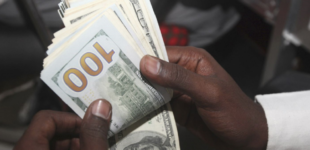

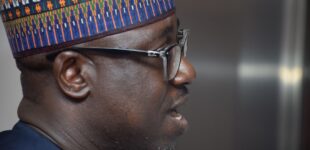
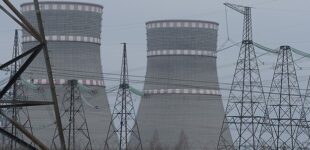



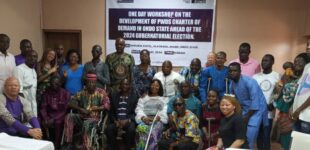
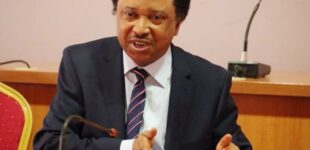

There are no comments at the moment, do you want to add one?
Write a comment